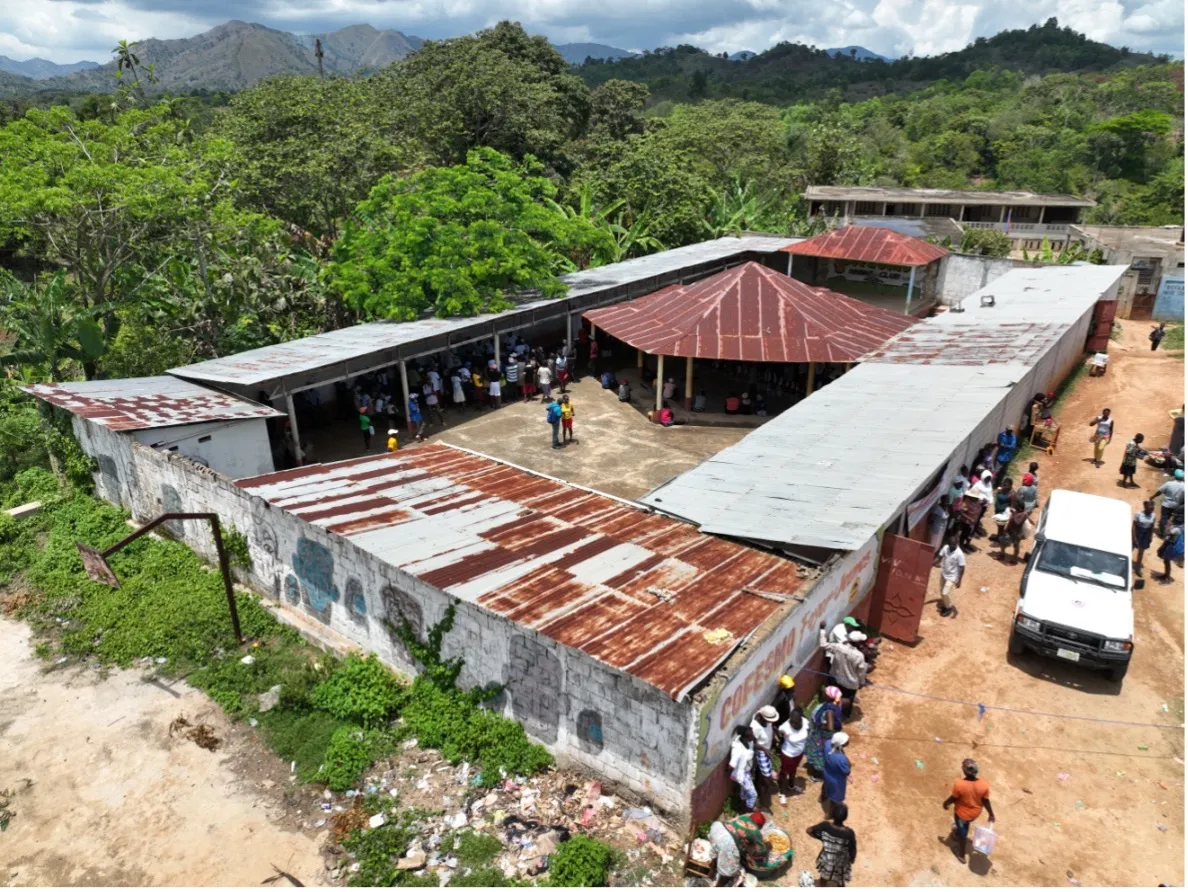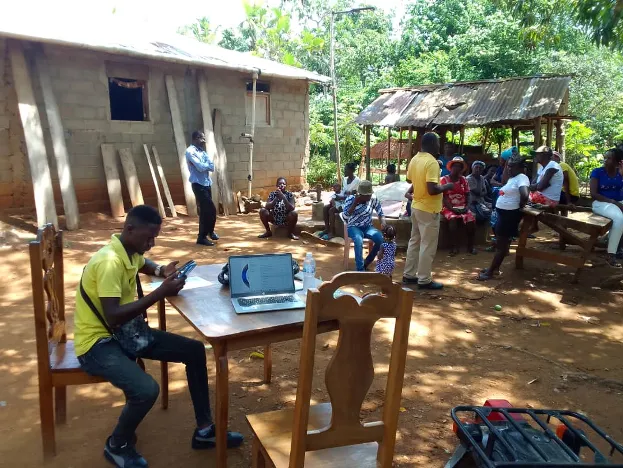CARE has worked in Haiti since 1954, and — despite considerable security challenges — is continuing to work today, targeting extremely poor and vulnerable people and communities. The recent crisis has expanded armed gangs’ control of the metropolitan area of Port-au-Prince, to roughly 85 percent of the entire region. The main office of CARE in Haiti has been temporary shut down and re-opened with reduced personnel and working hours. Field offices across the country are continuing their critical work.
Abner*, a Haitian national and CARE project manager, works in one of the field offices, in Ouanaminthe, near the country’s northern coast and the Dominican Republic border. There, he oversees a food security program that provides cash payments to those in need as well as nutrition training and malnutrition screenings. Abner’s office also runs an agricultural cash-for-work program where participants clean up roads, clean out pathways, and clear rivers and riverbanks for farmers, in exchange for tools and cash payments.
On March 18, he took an hour to give a real-time perspective from a country where 5.5 million need humanitarian assistance, with at least 1.4 million people facing emergency levels of hunger, just one step away from famine-like conditions, and there has been an unprecedented spike in violence against women and girls.
Below are his words, edited for clarity:
Abner*, CARE Haiti:
“We are facing a major humanitarian crisis in Haiti; it’s ongoing, and we don’t even have the means to measure the scale of it. We can only imagine some of it, because in many of these areas it is just impossible to reach because of gang activities.
Over fifty percent of the staff in field offices are from Port-au-Prince, including myself, where I have family. My mother, who is 74, is in the family house alone, while my sister had to migrate to Canada and I’m working away. Most staff working in the field share the same situation as I. This has a toll on us, as we constantly worry about our beloved ones trapped in Port-au-Prince. In the office here in the North, we are about 13 staff.
Everyone has someone close – a husband, a wife, children and let’s not forget our colleagues – in Port-au-Prince. So, you can imagine how difficult this has been. I have some staff complaining about insomnia, not being able to sleep at night, as they are in a constant state of fear and stress.
These are common issues that are raised; the stress level keeps going higher.
Just consider anyone in Haiti right now at risk — regardless of their social status, their revenue, whatever. Because, even if you have money at the bank, in many regions, especially around Port-au-Prince, some banks are shut down or shutting down.








